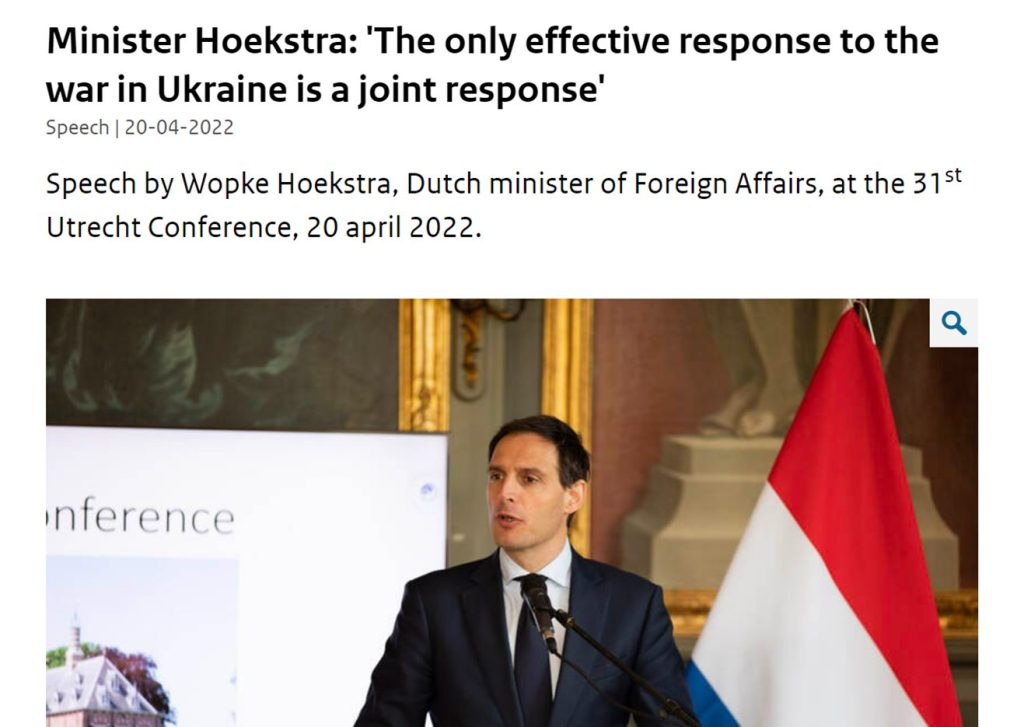
Historical Droste effect: I found out that the Dutch Minister of Foreign Affairs Wopke Hoekstra referenced a paper of mine – on poetry as a diplomatic tool in 17th-century Dutch-Polish relations – in a speech he gave at a modern Dutch-Polish diplomatic event, last April:
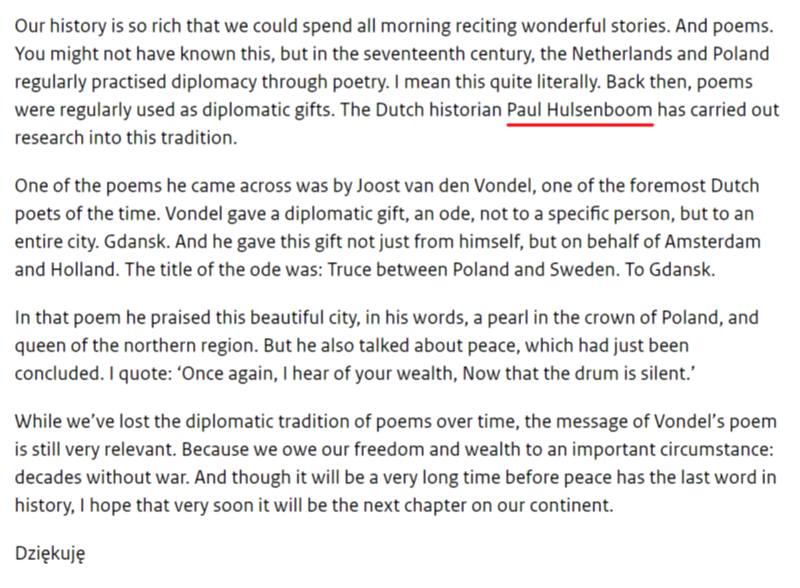 Hoekstra placed himself in that same 17th-century tradition by quoting the famed Dutch poet Joost van den Vondel, who praised Gdańsk in 1635 to boost the grain trade. Almost 400 years later, Vondel’s poem thus once again served to bolster Dutch-Polish relations. Also, Vondel’s definition of Gdańsk as “queen of the northern region” is a translation of a Latin verse about Gdańsk by the Polish poet Sarbiewski/Sarbievius, published in 1634. In other words: Hoekstra quoted Vondel quoting Sarbiewski. This is some serious intertextuality! Moreover, my own paper on early modern diplomacy has become part of the modern diplomatic process. And so have I: the fact that I’m a “Dutch historian” is especially relevant in this context (Hoekstra missed the opportunity to say that I’m also Polish, however).
Hoekstra placed himself in that same 17th-century tradition by quoting the famed Dutch poet Joost van den Vondel, who praised Gdańsk in 1635 to boost the grain trade. Almost 400 years later, Vondel’s poem thus once again served to bolster Dutch-Polish relations. Also, Vondel’s definition of Gdańsk as “queen of the northern region” is a translation of a Latin verse about Gdańsk by the Polish poet Sarbiewski/Sarbievius, published in 1634. In other words: Hoekstra quoted Vondel quoting Sarbiewski. This is some serious intertextuality! Moreover, my own paper on early modern diplomacy has become part of the modern diplomatic process. And so have I: the fact that I’m a “Dutch historian” is especially relevant in this context (Hoekstra missed the opportunity to say that I’m also Polish, however).
In conclusion, the speech shows how the study of history and literature can be used to pursue political and economic interests via international diplomacy. “Valorisation” of humanities research doesn’t get much more explicit than this.
My paper was published here, in Legatio: The Journal for Renaissance and Early Modern Diplomatic Studies in 2019.
Hoekstra’s speech can be found here.
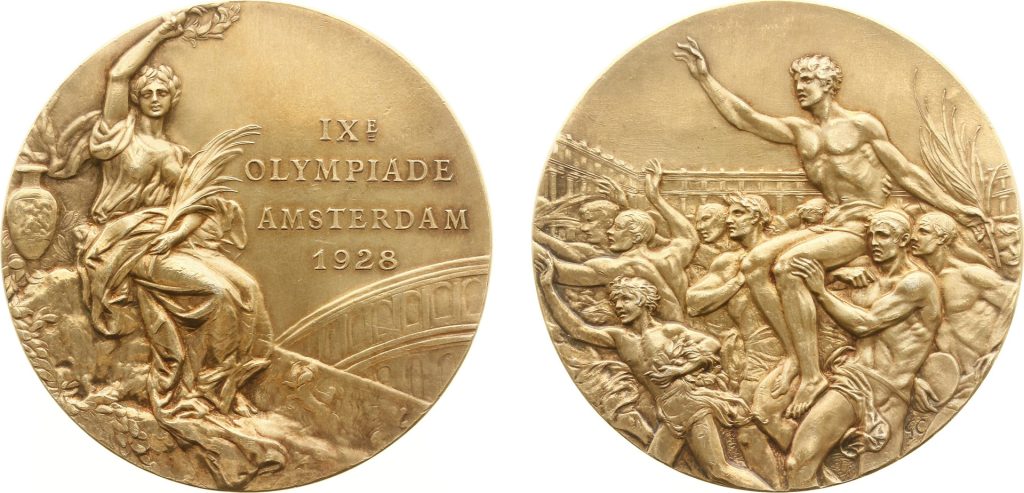

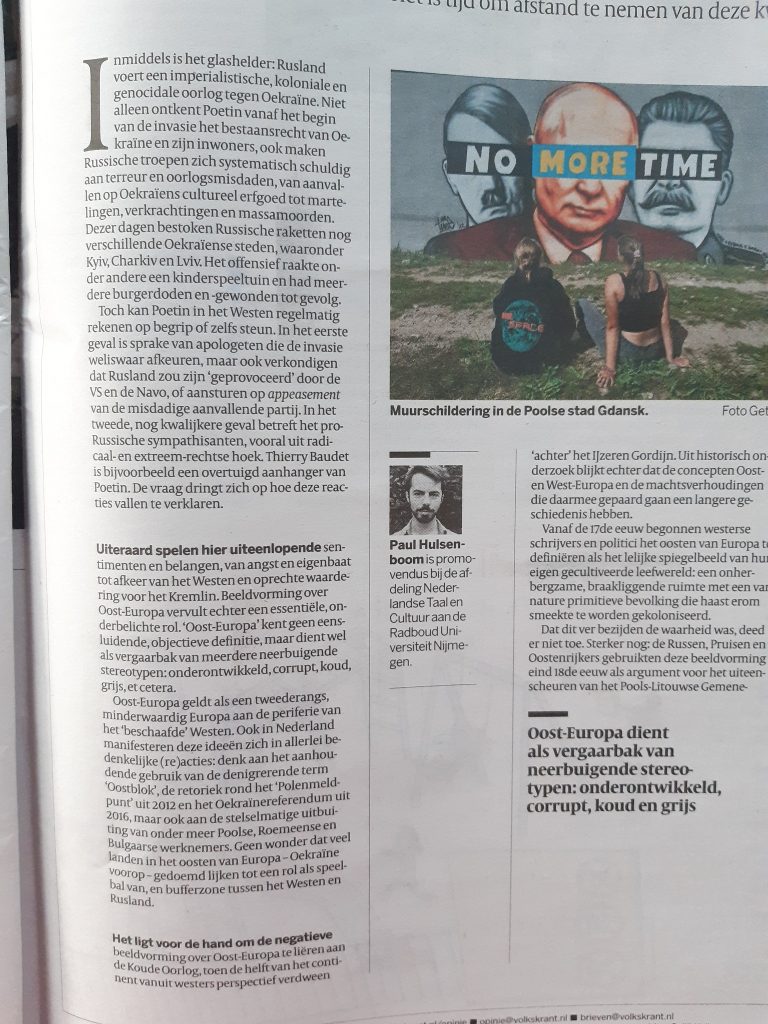
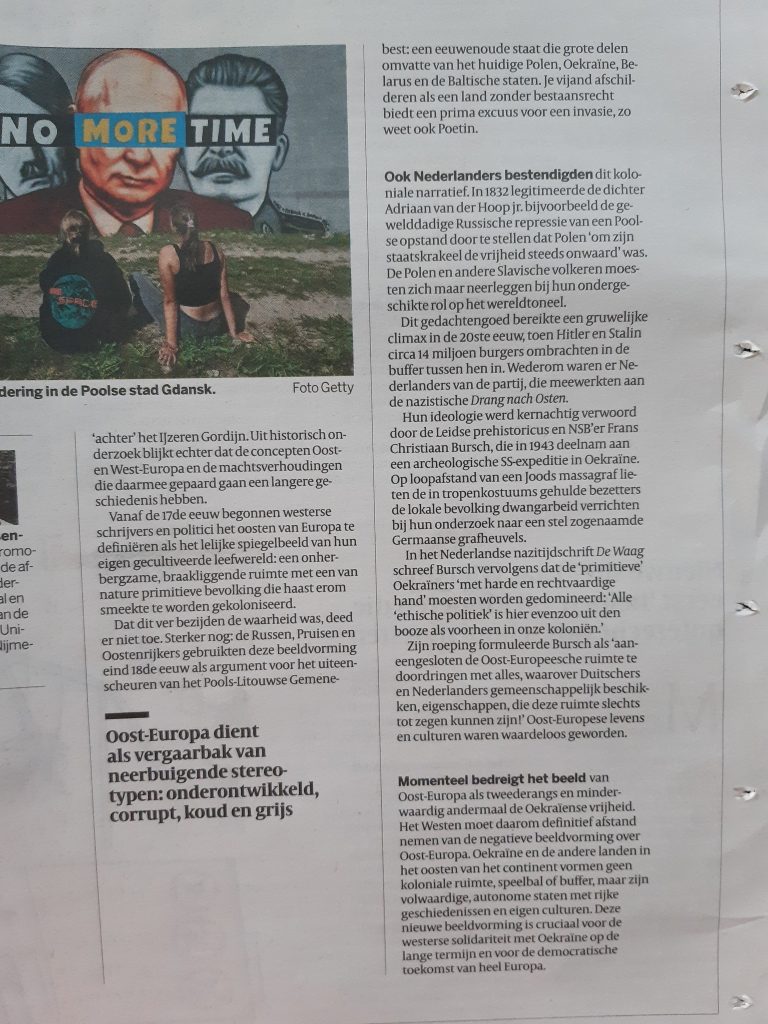
 Poland and the Netherlands share a rich history in sports. Right now, for instance, the two countries together host the Volleyball World Championship for women. An interesting older Dutch-Polish connection relating to women’s sports dates from 1928, when Amsterdam hosted the Summer Olympics. It was the first time women were allowed to participate in athletic and gymnastic events at the Olympic competition. The world champion in the field of discus throwing, the Polish Halina Konopacka, won the gold medal in that discipline, smashing both her personal and the world records. In addition, it was the first Olympic gold medal ever won on behalf of Poland. Konopacka was considered a beautiful athlete, which earned her the nickname “Miss Olympia”.
Poland and the Netherlands share a rich history in sports. Right now, for instance, the two countries together host the Volleyball World Championship for women. An interesting older Dutch-Polish connection relating to women’s sports dates from 1928, when Amsterdam hosted the Summer Olympics. It was the first time women were allowed to participate in athletic and gymnastic events at the Olympic competition. The world champion in the field of discus throwing, the Polish Halina Konopacka, won the gold medal in that discipline, smashing both her personal and the world records. In addition, it was the first Olympic gold medal ever won on behalf of Poland. Konopacka was considered a beautiful athlete, which earned her the nickname “Miss Olympia”.